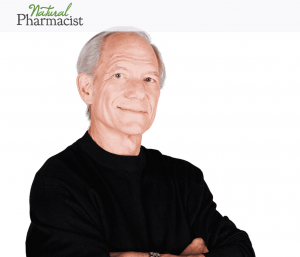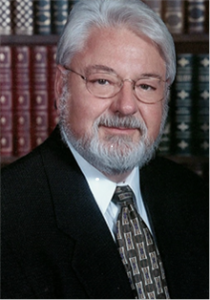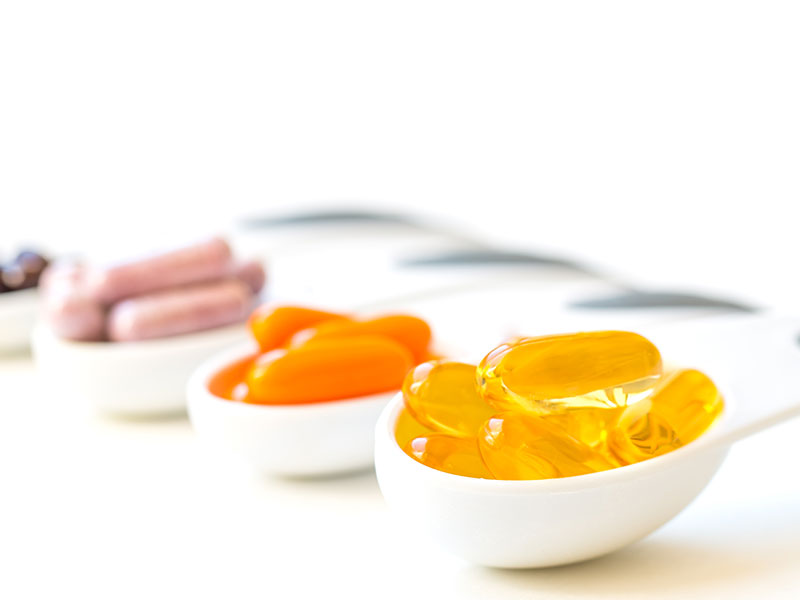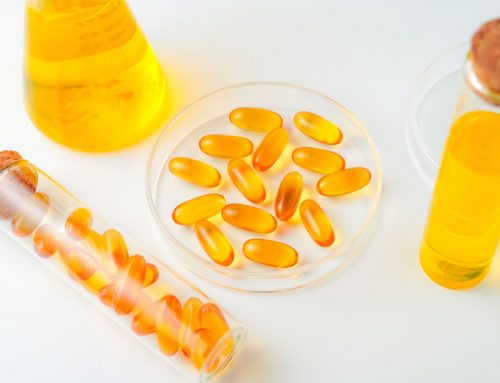
Dr. Ross Pelton brands himself as The Natural Pharmacist; he is also a certified clinical nutritionist. He is currently the Scientific Director for Essential Formulas. Dr. Pelton is the author of The Drug-Induced Nutrient Depletion Handbook. For a FREE copy of Dr. Pelton’s Quick Reference Guide to Drug-Induced Nutrient Depletions, go to naturalpharmacist.net/dind.
In the April/May 2020 issue of the journal IMCJ: Integrative Medicine: A Clinician’s Journal, pharmacist Dr. Ross Pelton reviews the most important developments in Coenzyme Q10 clinical research:
• The Q-Symbio Study in which researchers gave chronic heart failure patients 3 x 100 mg of Coenzyme Q10 or placebo daily as an adjuvant treatment together with conventional heart failure medications for two years. The outcome was significantly improved symptoms, quality of life, and survival in the CoQ10 treatment group compared to the placebo group [Mortensen 2014].
• The KiSel-10 Study in which researchers administered a combination of 2 x 100 mg of Coenzyme Q10 and 200 mcg of selenium or matching placebos to live-at-home senior citizens daily for four years. The outcome was significantly reduced risk of death from heart disease and improved heart function in the CoQ10 and selenium supplementation group compared to the placebo group [Alehagen 2013].
• The Langsjoen Hypertension Study in which researchers added an average of 225 mg of Coenzyme Q10 daily to the existing anti-hypertensive drug regimen of patients with essential hypertension for an average period of 13 months. The outcome for the CoQ10-treated patients was complete discontinuation of one to three blood pressure medications for 51% of the patients in the study and a NYHA functional class improvement from a mean of 2.40 to 1.36. The CoQ10 treatment of patients with high blood pressure was safe and cost-effective [Langsjoen 1994].
N.B. In all three of these studies, the Coenzyme Q10 used was in the ubiquinone form, the more stable and much more extensively tested form.
The Crystallization Problem for Coenzyme Q10 Absorption
In his article, Dr. Pelton discusses the CoQ10 crystallization problem:
• The human body cannot absorb CoQ10 crystals, only CoQ10 single molecules.
• CoQ10 crystals dissolve only at temperatures 10 degrees Celsius higher than body temperature.
• Microscopic examination of many CoQ10 capsules reveals that the matrix mix inside the capsules contains many CoQ10 crystals.
• The CoQ10 crystals present in the capsules at room temperature will not be dissociated to single molecules in the body; the crystalline form will prevent absorption.
Absorption and Bioavailability of Coenzyme Q10
Dr. Pelton reports on the results of the López-Lluch Study, a double-blinded crossover study of the bioavailability of Coenzyme Q10 supplements over a 48-hour period following ingestion of a single 100-mg capsule.
The results of the study showed that the ingestion of a patented CoQ10 supplement containing the oxidized form of Coenzyme Q10 – the ubiquinone form – yielded double the bioavailability of a patented ubiquinol supplement [López-Lluch 2019].
This finding refutes definitively the widespread marketing claim that ubiquinol supplements give a better absorption and bioavailability.
CoQ10 Formulation More Important than Form
Dr. Pelton concludes that the formulation of the CoQ10 supplement – the choice of carrier oils and the use of heat and cooling – is more important to CoQ10 absorption and bioavailability than the form of the supplement is – whether ubiquinone form or ubiquinol form.
He notes that this is valuable new information because comparisons of the absorption of the two forms of Coenzyme Q10 have lacked standardization of the testing procedures, thus making fair comparisons impossible.
Statins and Other Drugs Deplete CoQ10 Status
As the author of the Quick Reference Guide to Drug-Induced Nutrient Depletions, Dr. Pelton is well aware that the use of statin medications inhibits not only the bio-synthesis of cholesterol but also of Coenzyme Q10. Patients taking statin medications will want to talk with their cardiologists about the need for CoQ10 supplementation.
In addition to statins, Dr. Pelton points to the following classes of drugs that deplete Coenzyme Q10:
• oral contraceptives
• hormone replacement therapy
• tricyclic antidepressants
• adrenergic stimulants
• thiazide diuretics
• antipsychotics
• most chemotherapy drugs
• beta-blockers
• oral hypoglycemics: both sulfonylureas and biguanides
Dr. Pelton is also worried that many people have nutritional deficiencies that hinder the body’s ability to synthesize Coenzyme Q10 for the following reasons:
• the consumption of nutrient-poor fast foods and highly processed foods
• the declining nutritional content of commercially produced foodstuffs
• the use of toxic chemicals and artificial fertilizers and other destructive practices in agriculture

Dr. William Judy, SIBR Research, has tested numerous CoQ10 supplements commercially available in the US. His conclusion: absorption and bioavailability of the Coenzyme Q10 varies considerably from product to product. To get value, it is important to buy a CoQ10 supplement with absorption and heart health benefits documented in published journal articles.
Dr. William Judy – Long-time CoQ10 Researcher
In his article, Dr. Pelton draws on the work of Dr. William Judy, a highly respected CoQ10 scientist of 40 years’ standing. Dr. Judy was one of the first researchers to make the following points [Judy 2018]:
• Ubiquinol is inherently unstable in the body. Its ability to donate electrons make it a good antioxidant.
• Ubiquinol ingested as a supplement will be oxidized to the ubiquinone form of Coenzyme Q10 in the small intestines before the ubiquinol reaches the intestinal absorption cells.
• After the ubiquinol has been absorbed in the ubiquinone form, it will be reduced back to the ubiquinol form in the lymph and will pass into the blood circulation predominantly in the ubiquinol form.
Dr. Judy is the author of the 2018 book: Coenzyme Q10: An Insider’s Guide, available from amazon.com. ISBN: 978-87-7776-186-7.
Read our key article about CoQ10 and cardiovascular health in elderly people
Read our key article on CoQ10 as adjuvant therapy for heart failure
Sources
Alehagen U, et al. Cardiovascular mortality and N-terminal-proBNP reduced after combined selenium and Coenzyme Q10 supplementation: a 5-year prospective randomized double-blind, placebo-controlled trial among elderly Swedish citizens. International Journal of Cardiology. 2013, 167(5): 1860-1866.
Langsjoen P, et al. Treatment of essential hypertension with Coenzyme Q10. Mol Aspects Med. 1994;15 Suppl: S265-72.
López-Lluch, G. Bioavailability of Coenzyme Q10 supplements depends on carrier lipids and solubilization. Nutrition. 2019; 57:133-140.
Mortensen SA, et al. The effect of Coenzyme Q10 on morbidity and mortality in chronic heart failure: results from Q-SYMBIO: a randomized double-blind trial. JACC. Heart Failure. 2014, 2(6): 641-649.
The information presented in this review article is not intended as medical advice and should not be used as such.
10 July 2020









Leave A Comment